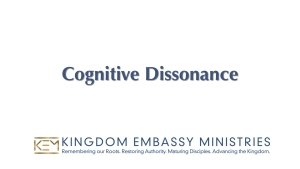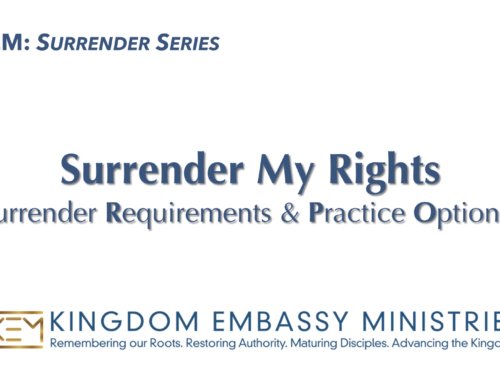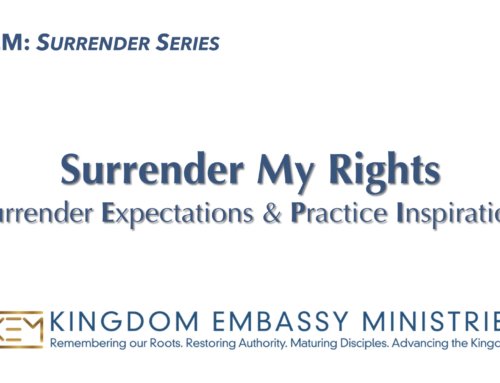Weekly Scriptures | Sermon Notes | Sermon Video
 When your behavior does not align with your values or beliefs, that discomfort you feel in your inner being is known as cognitive dissonance. Cognitive dissonance is a psychological phenomenon experienced as an unpleasant emotion or mental conflict. It is the result from simultaneously contemplating two contradictory beliefs, attitudes, values, or behaviors. It also occurs when persistent ingrained beliefs or assumptions are contradicted by new information. People tend to seek consistency in their attitudes and perceptions, so this type of conflict causes uncomfortable feelings and unease.
When your behavior does not align with your values or beliefs, that discomfort you feel in your inner being is known as cognitive dissonance. Cognitive dissonance is a psychological phenomenon experienced as an unpleasant emotion or mental conflict. It is the result from simultaneously contemplating two contradictory beliefs, attitudes, values, or behaviors. It also occurs when persistent ingrained beliefs or assumptions are contradicted by new information. People tend to seek consistency in their attitudes and perceptions, so this type of conflict causes uncomfortable feelings and unease.
When you are exposed to new information that is inconsistent with what you think, know and believe, and yet you remain unwilling to change your behaviors and beliefs, even when you know it is true, you are forced to do something that will allow you to maintain your position. This motivates a response that will help minimize feelings of discomfort. People attempt to relieve the tension from exposure to new threatening information with various reactions: rejection, rationalization, dismissal, or total avoidance. Or, you might just be humble enough to adopt the new way of thinking and change because of it. Everyone experiences cognitive dissonance to some degree, but it’s not always easy to recognize.
Cows are my favorite animal and I enjoy eating meat, and meat comes from cows—so, I just can’t think about it. It’s a silly little example that you might find easy to recognize. One potential source of cognitive dissonance that is poignant to today’s lesson sounds something like this. I was saved by grace through faith from the death caused by my sin. Sin is defined by God’s law and I am no longer in bondage to sin, which means I am empowered by Christ to obey God’s law. And, yet I am also taught that God’s laws are not applicable to Christians because Jesus abolished them and now all I need is faith. But, Jesus actually said He did not abolish the law; instead He empowered me with a new perspective and new abilities. God’s laws are not anymore too difficult to obey. And Paul said that faith does not nullify the law, but to the contrary establishes it. Christian history tells me that all I must do to be saved is to confess with my mouth and believe in my heart that Jesus is Lord and that God raised Him from the dead. But, the Bible teaches that the very confession that saves me concludes that with Christ, I am now empowered to obey God. So what exactly am I to obey if sin is lawlessness and I am no longer a slave to sin, but simultaneously obeying God’s laws is no longer required of me?
Can you feel the cognitive pressure building in your brain? When persistent ingrained beliefs or assumptions are contradicted by new information, it creates unpleasant emotions and mental conflict. This is cognitive dissonance. This type of conflict makes people uncomfortable, and as such they seek to realign their attitudes and perceptions. You’ve just been exposed to new threatening information. What will you do to resolve the conflict? Choose one: rejection, rationalization, dismissal, total avoidance, or perhaps change.
What can remove the conflict between your old beliefs and this new information? What can inspire new behaviors in the face of old habits? What can dismantle your desire to reject, rationalize, explain away, invent loopholes, or downright ignore novel ideas that demand a verdict? The love of truth will! Jesus said, “If you abide in My word, you are My disciples indeed. And you shall know the truth, and the truth shall make you free.”






Leave A Comment